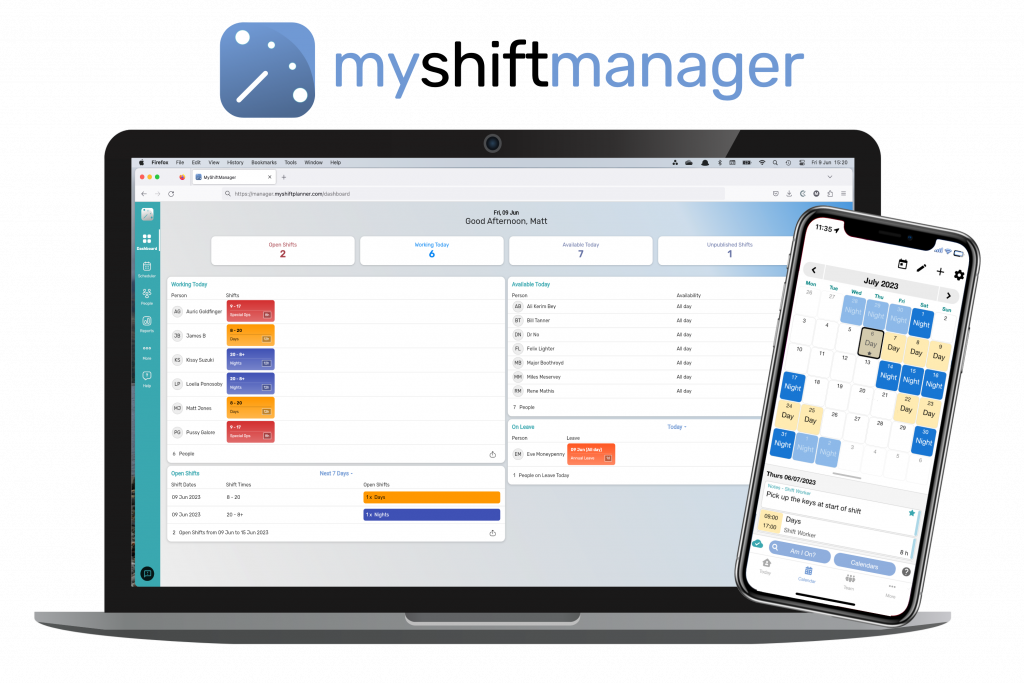Managing a shift work team is not a simple task. But here’s some important tips that can help you thrive in the shift maangement workplace.
Managing Shift Workers
Shift work teams are essential in many industries today. Whether it’s healthcare, transportation, manufacturing, retail, travel etc. etc. There’s an incresing need for teams of shift workers, who allow businesses to operate 24/7 in today’s fast-paced world.
Managing a shift work team can be a challenging task for any supervisors and managers. There’s always an issue that needs dealing with. And usually, the problems come at the last minute, when support and resources are thin on the ground.
Here’s some of the most common problems that managers face when managing a shift work team and provide some tips on how to overcome them.
Communication

One of the most significant challenges of managing a shift work team is communication.
By the very nature of the job, shift workers are active at different hours and days, which makes it difficult to communicate to the full team effectively.
As a result, it can be hard to ensure that everyone is on the same page. Communicating shift changes, sickness requests, Annual Leave etc. etc. All of it vital for the running of the team, and all of it important information that can all too easily be missed.
To overcome this challenge, shift managers should prioritize communication. It’s important to establish clear communication channels and ensure that all employees are informed of any changes or updates to the schedule. Regular meetings or briefings can help to ensure that everyone is up to date, but technology can help too. Communication tools such as instant messaging, video conferencing, or email can help.
But the most effective solution is dedicated shift scheduling systems that are designed to quickly update your team with changes and ensure that everyone is aware and in touch at all times.
Fatigue and Burnout

Shift work is stressful. It’s a well known fact that shift working can lead to fatigue and burnout, which can have a significant impact on employee productivity and well-being.
Fatigue can lead to decreased cognitive function. Meaning that workers show impaired decision-making skills, and increased risk of accidents.
Burnout can also lead to a marked decrease in job satisfaction, an increase absenteeism, and consequently an increase in staff turnover.
To prevent fatigue and burnout, it’s important for shift managers to prioritise employee well-being.
There are legal requirements to provide employees with adequate rest breaks and ensure that they have access to healthy food and drinks. But managers should also consider the type of work their staff are being asked to do, and the time of day they are working.
Implementing a better shift rotation system can ensure that employees have a reasonable work-life balance. At the same time, making sure that workers have immediate access to the schedule, so that they can see when they are working and plan proper time off.
Additionally, managers should provide resources for employees to manage their stress levels, such as counseling services or stress management workshops.
Another way to prevent employee burnout is to foster a culture of recognition and appreciation. Regularly acknowledging employees’ hard work and contributions can go a long way in boosting morale and motivation.
Scheduling

Scheduling can be a significant challenge when managing a shift work team.
Getting the right shift schedule is no easy task. Shift managers need to ensure that there are enough employees scheduled over the period to cover all shifts. Whilst still making sure that employees have a reasonable workload.
Scheduling conflicts can lead to understaffing, overstaffing, and increased stress for employees. So it’s imporant to be able to spot problems before they become critical, and communicate changes quickly and clearly to staff members.
To overcome these scheduling challenges, managers should use scheduling software to create and manage shift schedules.
Tools such as MyShiftManager can help to ensure that employees are scheduled for the appropriate shifts and can help managers to quickly identify and resolve scheduling conflicts.
It also helps if managers involve employees in the scheduling process by allowing them to request specific shifts or days off. This can increase employee satisfaction and reduce the likelihood of scheduling conflicts.
Training and Development

Shift work teams often require specialist skills and knowledge, which can be a challenge for managers to develop and maintain. Additionally, turnover rates in shift work teams can be high, which can lead to a loss of knowledge and skills.
To overcome this challenge, it’s vital to keep training and development at the forefront of everyone’s minds.
Provide employees with opportunities for professional development and training through workshops or certifications.
Additionally, try to encourage knowledge sharing among employees and develop mentorship programs to transfer knowledge from experienced employees to newer employees.
By investing in employee development, managers can help to increase employee engagement and retention.
Make Managing Shift Work Easier
Managing a shift work team is a challenging task, but with proper planning and communication, and the right tools to help, it is possible to overcome the most common problems.
It’s for this reason that we developed MyShiftManager. To help managers prioritse communication, good scheduling and employee well-being.
With MyShiftManager and MyShiftPlanner working together, you can ensure that your shift work team is more productive, happier and more efficient too.

You can try MyShiftManager for free any time!
With the right tools in place, you can make sure you’re team are responding to all your work needs, quickly and efficiently.






